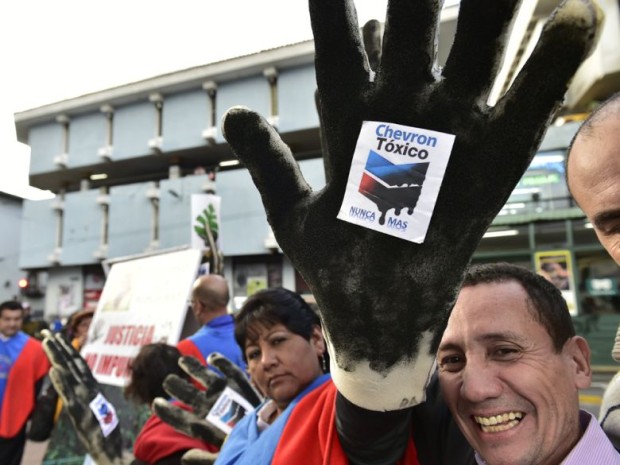
Financial Post 09/11/2018

Photo: Financial Post
This weekend sees a conference in Banff that should be of interest to all those concerned about the rule of law, and the forces undermining it. Titled “Indigenous Solutions for Environmental Challenges,” the conference’s “context” is the US$8.6 billion (at last count) judgment in an Ecuadorean court against U.S. oil company Chevron. According to the conference’s website, the Chevron case will be used “to consider the critical role of judicial remedies for violations of the rights of indigenous and other affected peoples… both in Canada and beyond.”
With the Trans Mountain pipeline expansion on judicial hold, and capital evacuating the Canadian oil patch due to legislative uncertainties, the topic is timely. But if “hard cases make bad law,” then corrupt cases threaten very bad law indeed.
Two U.S. courts have determined that the Ecuadorean decision was the result of a fraud engineered by U.S. lawyer, Steve Donziger (who will be appear at the conference). Donziger claims this is all a Chevron campaign to “vilify him” for innocent “errors in judgment.” Earlier this year, Donziger’s licences to practice law in the U.S. were suspended.
Conference organizer Kathleen Mahoney, a law professor at the University of Calgary, told me this week in an email that she denies the conference is about applying “pressure to bear on Chevron to come to the table,” but those are the words used more than a year ago in her letter to Donziger proposing the conference, and suggesting he support it (the letter is reprinted below). The letter, part of a contempt motion filed by Chevron against Donziger, redacted until recently, was last month ordered fully disclosed by a New York court. The court exhibit shows Donziger passed the letter to colleagues with the comment: “Please do not send around. This is potentially breakthrough stuff…. Kathleen is (former national chief of the Assembly of First Nations) Phil Fontaine’s wife and she is a major force in Canada as a human rights lawyer and activist.”
When presented with a copy of her letter this week, Mahoney explained that she had denied writing those words because I had taken them “out of context and created a wrong impression.”
The Chevron case is based on environmental damage arising more than 25 years ago from the operations of Texaco, which Chevron acquired in 2001. Texaco paid for a cleanup and was released from further obligation by the Ecuadorean government. If this really is “the largest environmental catastrophe in the world,” as the conference material claims, that is surely due to the state oil company, Petro-Ecuador, Texaco’s former partner who has since operated in the region.
Read more here
Fuente OriginalNotas relacionadas